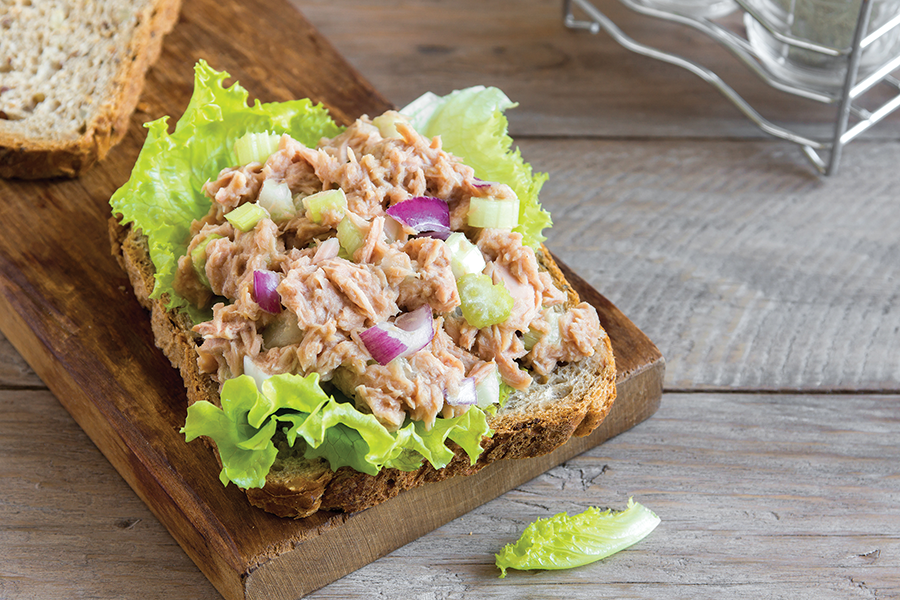A 2015 national survey from the American Psychological Association (APA) revealed that 77 percent of the Americans surveyed regularly experience physical symptoms caused by stressed, and 73 percent regularly experience psychological symptoms caused by stress. Respondents of this survey also lusted eating, watching television for more than two hours per day, and surfing the web as methods of coping with stress, which are three of the 10 most commonly reported coping mechanisms for stress. Here are eight methods that have been shown to alleviate stress without adding screen time or junk food to your day.
1 Meditation
A review of current research published in the Journal of Psychiatric Practice found that meditation and mindfulness practices are not only effective for individuals dealing with anxiety and depression but are also effective in promoting general psychological health and stress management in healthy individuals.2 Meditation has even been shown to reduce the physiological impacts of chronic stress. A meta-analysis of 45 studies published in the Journal of Psychiatric Research found that meditation was effective in reducing systolic blood pressure. In addition, the researchers found that focused attention meditation, during which the practitioner focuses on a single target such as breathing, reduced cortisol, c-reactive protein, blood pressure, heart rate, triglycerides, and tumor necrosis factor-alpha.
2 Exercise
The APA explains that the value of exercise in mitigating stress actually arises from the ability of exercise to replicate the physiological stress response. If you read our breakdown of the physiological stress response on page 12, you’ll know that many of our bodily systems are activated at once when we’re experiencing stress, and these systems must communicate closely in order to operate harmoniously. Similarly, when we exercise, many of these same bodily symptoms (e.g., the cardiovascular, renal, muscular, and central and sympathetic nervous systems) are working hard and communicating closely. Therefore, explains the APA, exercise provides practice for these communication systems and strengthens our ability to respond to stress without becoming overwhelmed.
3 Breathing exercises
Need a quick way to decompress? Breathing exercises can be done anywhere and relax your body by replicating how you naturally breathe when you’re at ease. Researchers from the University of Michigan recommend “belly breathing” for those who are new to breathing exercises. While sitting or lying flat, place one hand on your belly and one on your chest. As you breathe deeply through your nose, feel your belly push your hand out, making sure that your chest is not moving. Then, purse your lips and push all of the air out, feeling your belly move back in with the exhale. This can be done 3 to 10 times, and don’t rush! Each breath should be evenly placed and comfortable.
4 Music
In a study published in the Journal of Music Therapy, 87 college students (43 men and 44 women) were exposed to a stressful task in silence or while listening to Pachelbel’s Canon in D. The researchers measured physiological stress markers, including subjective anxiety, heart rate, blood pressure, and cortisol. Participants listening to the classical tune while completing the stressful task did not experience the physiological stress response observed in those participants sitting in silence.6 In another study published in the journal Applied Psychophysiology and Biofeedback, 56 college students (15 men and 41 women) were given a stressful test, then spent
a period of time listening to either heavy metal music, classical music, self-selected music, or silence. The researchers observed the lowest stress levels in the students who listened to classical or self-selected music.
5 Chew Gum
An article published in Physiology and Behavior described the results of a study in which 40 participants were exposed to a multitasking assignment meant to induce stress. According to the researcher’s measurements, alertness was increased and anxiety and salivary cortisol were decreased in participants who were given gum to chew while working on the task. In addition, overall performance on the task was significantly better in participants who were chewing gum.
6 Journaling
Writing about thoughts and feelings in the context of traumatic or stressful experiences, known as expressive writing, has been shown to help some people manage stress. The first study examining how journaling can benefit our psychological health was conducted in 1986 and tasked 46 healthy college students with writing about either traumatic life events or mundane topics for four consecutive days of the week for six months.10 During this period, the researchers observed fewer visits to the campus health center and lower usage of pain relievers
in the students who wrote about stressful life events than the students who wrote about trivial topics. Since then, more than 400 studies have been conducted on this method of stress relief, according to a meta-analysis published in 2014.11 The same analysis found that individuals who rated high in expressiveness (meaning those who are more prone to express emotions) found the strategy more helpful in relieving stress and anxiety. In addition, this method of stress relief has been shown to be most effective in healthy individuals who aren’t simultaneously managing severe mental health challenges, such as major depression or post-traumatic stress disorder.
7 SPEND TIME IN NATURE.
In one study published in the Journal of Health Psychology, 30 participants were prompted to complete a stress-inducing task and then were given time to either read indoors or garden outside. By measuring salivary cortisol in all of the participants, the researchers found that both tasks resulted in a decrease in stress; however, gardening decreased stress considerably more than reading.11 If gardening isn’t your thing, another study published in Urban Forestry and 4. Urban Greening showed that simply visiting a city park significantly reduced stress levels in participants. These positive effects were enhanced for study participants who engaged in physical activity, such as sports or walking, while visiting the park . 1 3
8 GET ADEQUATE SLEEP.
You really can’t work your way around this one. No amount of soothing music is going to be able to ease the stress of chronic sleep deprivation. Sleep deprivation is associated with higher resting cortisol levels as well as an intensified cortisol response to stress.14 Sleep and stress exist in an unfortunate cycle— when stress is high, sleep suffers, and when sleep suffers, our bodies have an even more difficult time dealing with the stress that impacted our sleep in the first place.15 Implementing a relaxing sleep routine devoid of exposure to any artificial lighting (especially phone, computer, and television screens) will help to prime your body for sleep. If you want to kill two stress-inducing birds with one stone, this quiet period before bed is a great time to implement a meditation routine, which has been shown in studies to cut sleep onset time in half and improve overall sleep quality.16,17





